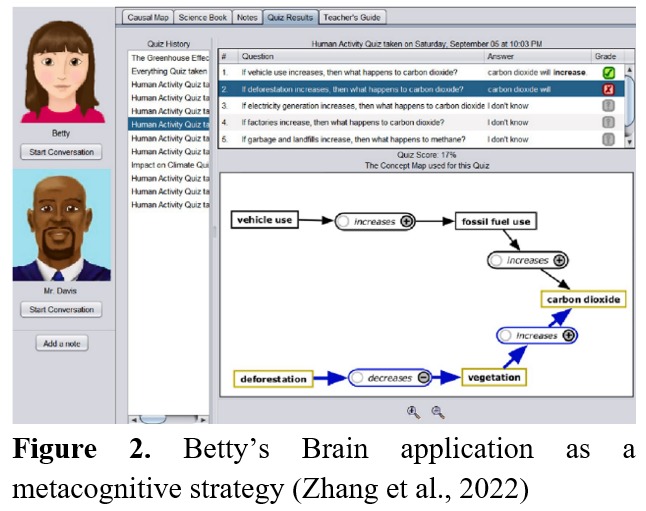Metacognitive in Learning: Conceptual, Instructional Strategies, and Assessment
Keywords:
metacognitive strategies, metacognition, metacognitive assessment, reflective learningAbstract
Metacognition development plays an important role in improving the quality of 21st century learning. This article aims to comprehensively review three main aspects of metacognition in education, namely: conceptual clarification, instructional strategies, and assessment approaches. This study uses a literature review method with thematic analysis of ten articles from reputable journals. The results of the study indicate that metacognition consists of two main dimensions: metacognitive knowledge (declarative, procedural, and conditional) and metacognitive regulation (planning, monitoring, controlling, evaluating). Effective metacognitive learning strategies include explicit (self-testing, reflection prompts) and implicit (collaborative discussion, epistemic tools) approaches. On the other hand, metacognitive assessment needs to be developed from self-report to performance-based assessment and real-time monitoring for more contextual results. This study concludes that the integration of conceptual understanding, teaching strategies, and metacognitive assessment is essential in designing reflective and adaptive learning. These findings provide a theoretical and practical basis for teachers, researchers, and curriculum developers in implementing metacognition-based learning in a comprehensive.

Downloads
Published
Issue
Section
License
Copyright (c) 2025 Jurnal Kiprah

This work is licensed under a Creative Commons Attribution 4.0 International License.


